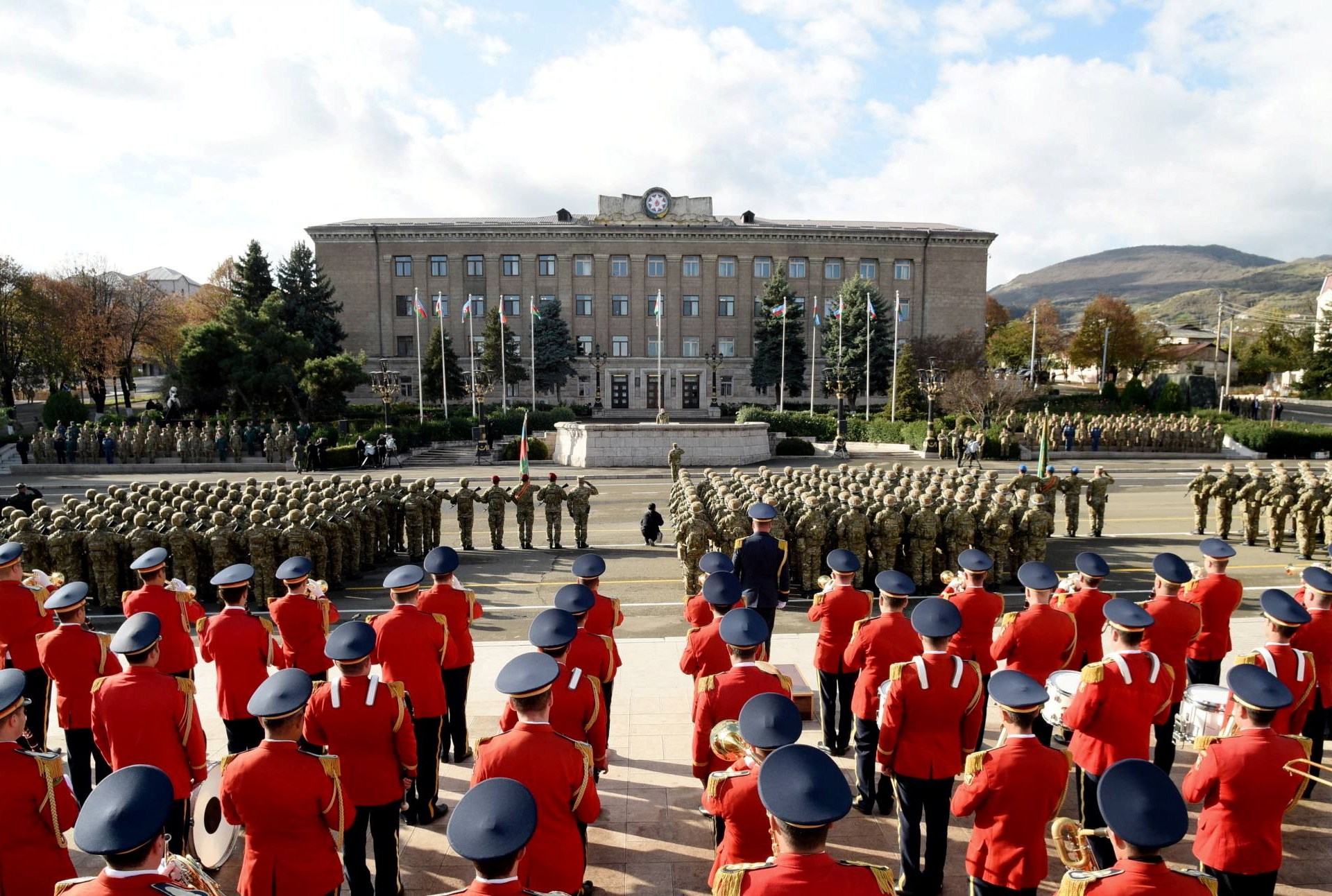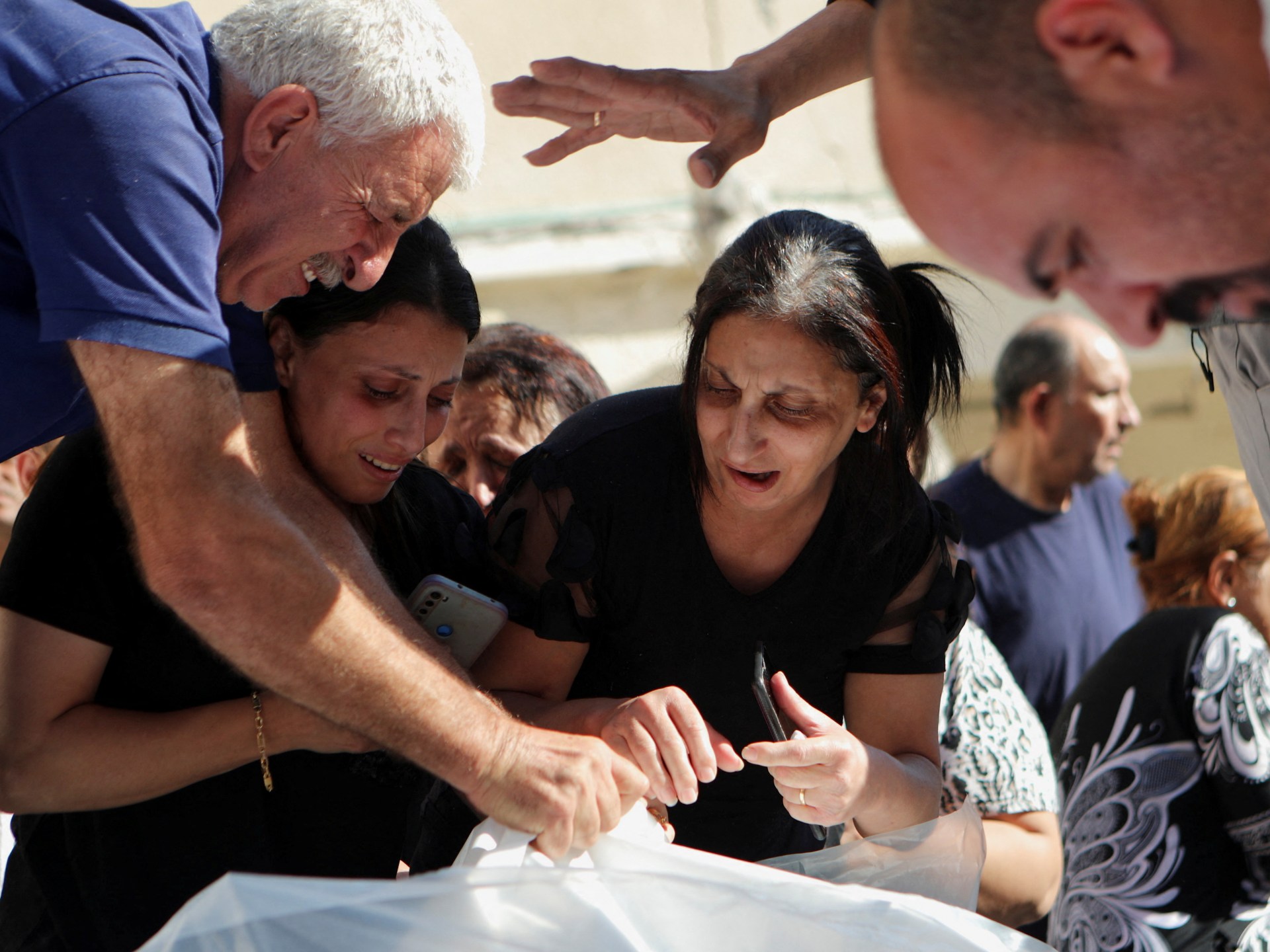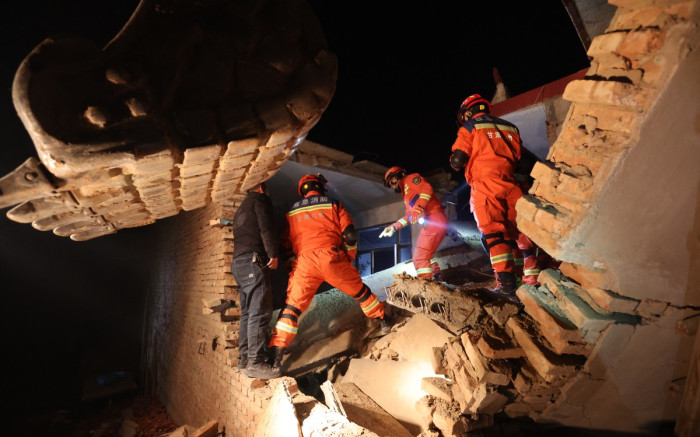
EU and US welcome joint statement in which both sides agree on prisoner of war exchange and Armenia supports Azerbaijan’s COP29 offer.
Armenia and Azerbaijan have said they will exchange prisoners of war and work toward normalizing their relations, a move welcomed by the European Union and the United States.
The two countries are embroiled in a decades-long conflict over Nagorno-Karabakh, which Azerbaijan recaptured after a year Lightning offensive against Armenian separatists in September.
In a joint statement late Thursday evening, both sides said they had agreed to “seize a historic opportunity to achieve a long-awaited peace in the region” and hoped to sign a peace deal before the end of the year.
“The two countries reaffirm their intention to normalize relations and reach the peace agreement based on respect for the principles of sovereignty and territorial integrity,” the statement added.
The Azerbaijani offensive in Nagorno-Karabakh in September ended three decades of rule by ethnic Armenians over the territory and led to most of the 120,000 residents fleeing the region, which is internationally recognized as part of Azerbaijan.
Until Thursday’s announcement, the two countries had argued bitterly over the basic principles of a peace process mutual distrust.
The statement said Baku would release 32 Armenian prisoners of war, while Yerevan would release two Azerbaijani soldiers. This is an agreement reached during talks between the office of Armenian Prime Minister Nikol Pashinyan and the government of Azerbaijani President Ilham Aliyev.
The two countries also said they will “continue their discussions on implementing additional confidence-building measures that will be effective in the near future and call on the international community to support their efforts.”
The Armenian Foreign Ministry said Yerevan “responded positively to the offer of US Secretary of State Antony Blinken to organize the meeting of the foreign ministers of Armenia and Azerbaijan in Washington.”
European Council President Charles Michel called the developments a “major breakthrough in relations between Armenia and Azerbaijan,” while the US welcomed the statement and prisoner exchange.
“This commitment represents an important confidence-building measure as both sides work to finalize a peace agreement and normalize relations,” State Department spokesman Matthew Miller said in a statement.
As part of the agreement, Armenia also agreed to withdraw its objections to Azerbaijan hosting the international conference on climate change next year.
Countries failed to agree on an Eastern European host for the 2024 climate talks as Russia vetoed EU countries and Azerbaijan and Armenia rejected each other’s offers. A decision on the location and chair of the meeting should be made next week.
The joint statement said: “The Republic of Armenia supports the request of the Republic of Azerbaijan to host the 29th session of the Conference of the Parties [COP29] the UN Framework Convention on Climate Change by withdrawing one’s own candidacy.”
Aliyev and Pashinyan met several times for EU-brokered normalization talks, but the process stalled in the last two months as two rounds of negotiations failed to take place.
Azerbaijan had refused to take part in talks with Armenia scheduled for November 20 in the US due to what it said were “biased” attitudes from Washington.
In October, Aliyev refused to take part in a round of negotiations with Pashinyan Spainat the time he accused France of bias.
French President Emmanuel Macron and German Chancellor Olaf Scholz were scheduled to mediate these talks.
Armenia and Azerbaijan have disputed for more than three decades over Nagorno-Karabakh, which broke free from Baku’s control in a bloody ethnic conflict that accompanied the collapse of the Soviet Union in 1991 and survived with financial, military and diplomatic support from Yerevan.
A second war broke out in 2020 before Azerbaijan’s attack on September 19 prompted Armenian separatists to do so lay down their weapons after just a single day of fighting.






Recent Comments